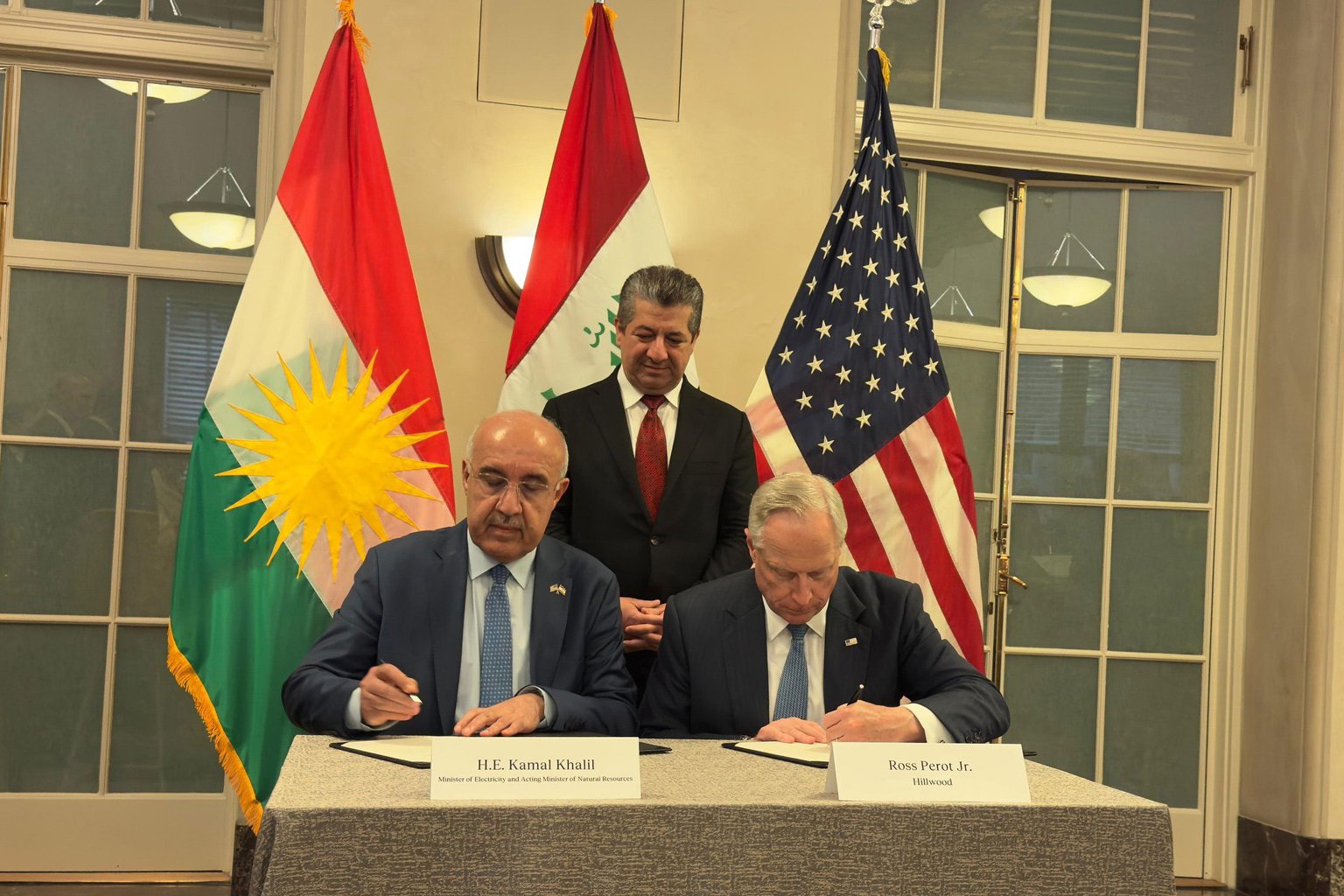KRG Strikes $110 Billion Energy Deals, Bypasses Baghdad in Bold Power Play

The Kurdistan Regional Government (KRG) has signed two major contracts with American energy companies, collectively valued at $110 billion. This represents the first oil agreements by the KRG since Kurdish oil exports were suspended in March 2023 following a ruling by the international arbitration court in favor of the Iraqi government.
Context: Both contracts focus on fields located in the PUK-controlled Sulaimani province. The first is a gas development agreement with Miran Energy, a joint venture between U.S.-based HKN and the Onyx Group. The Miran field is estimated to contain eight trillion cubic feet of gas. The first phase is expected to begin within 18 to 20 months, and between 50 and 70 million cubic feet of gas will be extracted daily. The second contract involves Western Zagros Company and encompasses both gas and oil development. This agreement aims to increase oil and gas production from the Kurdamir field along with the Topkhana field. KRG Natural Resources Minister Kamal Muhammad confirmed that the Iraqi federal government was not consulted prior to the signing of these contracts.
Analysis: The signing of these two major contracts signals the beginning of a new phase in regional dynamics—one where the Kurds may be leveraged as a tool for diluting Shiite dominance in Iraq. If navigated wisely, it may also unlock new leverage and opportunities for the Kurdistan Region itself.
Efforts to develop gas assets in the region are not new. Attempts to develop key gas fields such as Khor Mor and Chamchamal have repeatedly been disrupted by pro-Iran militia groups. Even the bombing of KAR Group CEO Baz Karim Barzinji’s residence in 2022 occurred within this broader pattern of resistance to KRG-led energy projects.
Before the Trump administration took office, the U.S. Assistant Secretary of State for Energy Affairs visited the Kurdistan Region and conducted a field assessment at businessman Ahmad Ismail’s Pirdawd station in Erbil, encouraging him, Baz Karim Barzinji, and Sheikh Fakhir CEO of Qaywan company to utilize Kurdistan’s gas for electricity generation and subsequent sale to Iraq.
Following this diplomatic engagement, the PUK discreetly installed a gas pipeline from Khor Mor to Bazian power plant, which boosted electricity production by over 500 megawatts, now sold to Iraq. Additionally, the PUK renovated another gas pipeline connecting Khor Mor to the Jambur field in Kirkuk, extending to the electricity production facility in Kirkuk’s Taza district, aiming to address electricity shortages in Kirkuk.
The two contracts signed by KRG with US energy firms
Gas Development: Miran Field
Field Location: Miran Gas Field, Sulaimani Province- Partner: Miran Energy (HKN & Onyx Group JV)
- Est. Reserves (Gas): 8 trillion cubic feet
- Phase 1 Dev.: Within 18-20 months
- Projected Output: 50-70 million cubic feet/day
Oil & Gas Development: Topkhana-Kurdamir
Field Location: Topkhana-Kurdamir Blocks, Sulaimani Province- Partner: Western Zagros Company
- Est. Reserves (Gas): Estimated 5 trillion cubic feet
- Est. Reserves (Oil): Estimated 900 million barrels
- Objective: Boost production in covered blocks
U.S. officials have long urged Baghdad to incorporate Kurdish gas into the national grid. But two competing visions exist in Iraq: one advocates buying gas from Kurdistan at market terms, while the other insists the KRG should provide gas for free, with Baghdad merely paying company dues. To shift the balance, Baghdad has offered Dana Gas and Naft Hilal large gas fields in southern Iraq, aiming to incentivize alignment with federal demands—particularly significant since both companies operate in the Khor Mor field.
Meanwhile, negotiations between the KDP and PUK are conducted through highly personalized channels, and the gas issue likely constitutes a significant undisclosed component of the KDP-PUK agreement, with ministerial positions and other matters serving largely as peripheral concessions.
Western Zagros, already operating the Kurdamir field, has now been awarded development rights to the adjacent Topkhana field under the new agreement. These operations are managed in coordination with service companies tied to the PUK’s General Administration. There are local partners in both contracts, but it remains unclear how ownership is divided between the KDP and PUK.
The political choreography is telling: while KRG Prime Minister Masrour Barzani and his team are in Washington, Bafel Talabani is also in the U.S., and Qubad Talabani has been publicly emphasizing Sulaimani’s economic revival.
The timing and location of these contracts point to a deeper shift. By inviting U.S. companies into Sulaimani—a province often viewed as within Iran’s sphere of influence—the PUK leadership appears to be repositioning itself, possibly securing American political cover and signaling a break from the narrative of Iranian alignment.
Much now hinges on Baghdad’s reaction. This is no longer a purely Kurdish issue. The growing involvement of American actors raises the geopolitical stakes.
At present, Iran is regionally overstretched and politically weakened, limiting its ability to obstruct such a deal effectively. Should Iranian-backed militias attempt to sabotage these gas fields, they would risk triggering a crisis not only with the KRG but with Baghdad and Washington alike. The fallout would likely create substantial political and security challenges for the Iraqi government itself.









